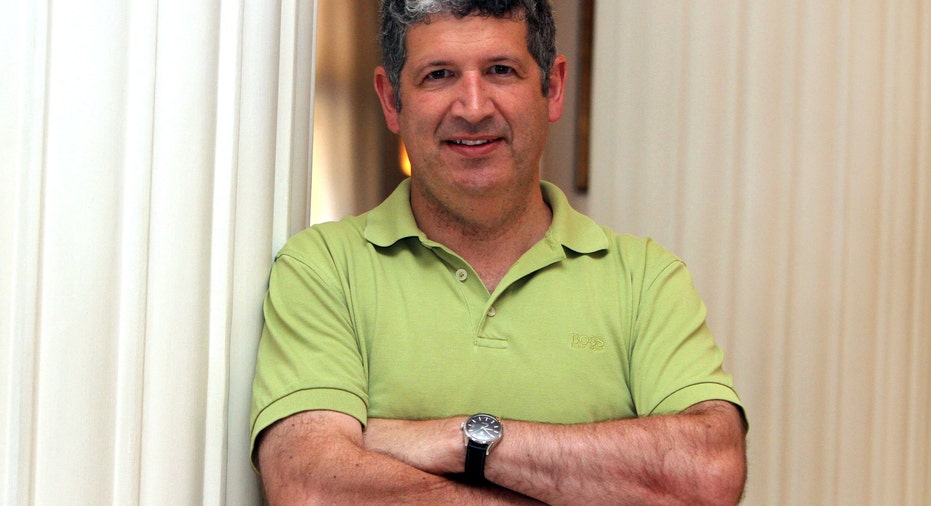Priceline CEO Is Out After Affair, But Should He Be?

Priceline CEO Darren Huston resigned yesterday, after an internal investigation determined that a personal relationship he admitted to having with an employee was “inconsistent with the board’s expectations for executive conduct.” Huston is married; at least for now.
A former Microsoft and Starbucks executive, Huston lasted just two years and four months at the helm of the online travel company. He follows a number of high-profile top executives who were ousted under similar circumstances, including Starwood’s Steven Heyer and Boeing’s Harry Stonecipher, according to the Wall Street Journal.
While the apparent frequency of CEO affairs and their unpleasant outcomes might make you wonder why male business leaders can’t seem to get it through their heads that dipping their pens in the company ink is a bad idea, I have a somewhat different take.
If they’re consenting adults, where’s the harm? Granted, there could be a personal toll on the home front if one or both parties are in a committed relationship, but what’s that got to do with business?
Here’s a startling bit of anecdotal data: I have actually worked for four CEOs who ended up divorcing their wives and hitching up with direct reports, not necessarily in that order. Three of their future wives were administrative assistants and one was an executive. As far as I know, they all turned into long-term marriages.
Don’t get me wrong. Sexual harassment and unwanted advances are definitely bad news under any circumstances. And even consensual extracurricular relationships between bosses and their direct reports can either result in nepotism if things go well, or turn toxic if things go south, as they tend to do, sooner or later.
There are plenty of good reasons for companies to have policies that cover office affairs. It’s always best for employees to know where they stand and that’s the only way you’re ever going to see everyone held to the same standard. It also helps in mitigating litigation risk.
That said, I can think of one very good reason why most management teams avoid the subject altogether. Matters of the heart are simply not black and white. And when they cross that line into the workplace – a line that’s becoming harder to define as our work-life balance continues to disintegrate – things get even murkier.
The truth is that many, if not most, executives are workaholics with little time for recreational activities outside of work and family. And while it would be nice if every marriage worked out, that’s simply not the case. As a practical matter, how in the world is a hard-working business leader supposed to meet the future Mr. or Mrs. if not at the office?
In my experience over several decades in the corporate world, that’s the reality of the situation. And sometimes, those relationships work out long term.
Where a lot of executives get into trouble is in the cover-up phase. When they’re trying to hide their activities and cover their tracks – as much for personal as for professional reasons – they sometimes breach other standards of conduct that make it difficult for their boards to trust them, going forward.
Case in point, the relationship between former HP CEO Mark Hurd (now CEO of Oracle) and a contractor who often accompanied him on offsite customer meet-ups. She took it to the board and, while an independent investigation turned up no improprieties between the two, there were a few expenses that should have been expensed.
Personally, I think the whole thing was overblown and the board ended up losing the best CEO the company has had for years before or since, but it’s still a cautionary reminder of what can happen when you cross that line. There are risks involved, even if, in our minds, the potential rewards outweigh them.
The reality is that boards have quite a bit of discretion in these cases. With all the hot water chief executives can get themselves into, having an affair with an employee is decidedly lukewarm. And while nobody wants to lose a well-performing and well-liked CEO, oftentimes, that’s what the decision comes down to.
In a WSJ interview following his abrupt ouster from Starwood, Heyer, who denied any wrongdoing, characterized the situation as “the straw that broke the camel’s back” in a long and contentious relationship with the board and executives who were passed over for promotion as the admittedly difficult CEO restructured the company.
An accusation alone can be enough for directors who are more concerned with playing it safe and covering their own behinds than they are with doing what’s best for the company. That may not have been the case with Huston, but it’s not uncommon with risk-averse boards and rough-and-tumble CEOs who ruffle feathers.



















